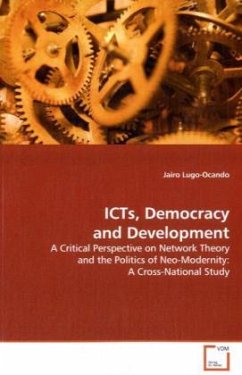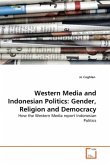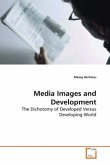We are aware today that notions such as 'knowledge
economy' and 'information society', which dominated
the discourses of the 1990s, were ideological
constructions. But for millions of people in poor
parts of the world they still mean unfulfilled
promises of progress and modernity in the face of a
technological version of the Washington Consensus.
This book wants to demystify these promises in light
of critical theory and empirical evidence, so these
people can move towards a more rational
understanding of digital and interactive
technologies in the context of their own political
systems and development aspirations. Using
comparative analysis between different nations, the
book explores the links between ICTs, development
and democracy. It aims to make a distinctive
critique of the role of these technologies in
society; identifying transformational elements,
national realities and particular socio-economic,
cultural and political conditions. In so doing, the
book explores how ICTs has helped to construct a
particular version of progress and modernity; one
that more often than not excludes those who were
supposed to help.
economy' and 'information society', which dominated
the discourses of the 1990s, were ideological
constructions. But for millions of people in poor
parts of the world they still mean unfulfilled
promises of progress and modernity in the face of a
technological version of the Washington Consensus.
This book wants to demystify these promises in light
of critical theory and empirical evidence, so these
people can move towards a more rational
understanding of digital and interactive
technologies in the context of their own political
systems and development aspirations. Using
comparative analysis between different nations, the
book explores the links between ICTs, development
and democracy. It aims to make a distinctive
critique of the role of these technologies in
society; identifying transformational elements,
national realities and particular socio-economic,
cultural and political conditions. In so doing, the
book explores how ICTs has helped to construct a
particular version of progress and modernity; one
that more often than not excludes those who were
supposed to help.








